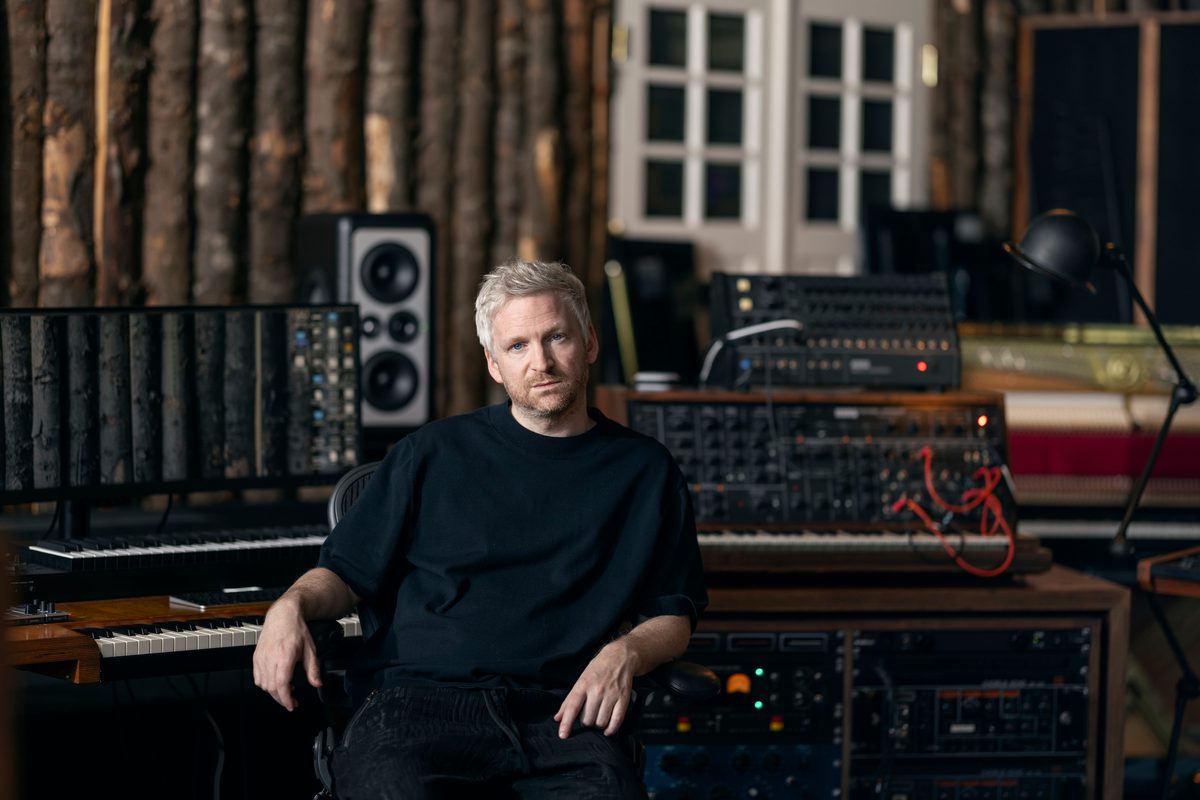
A duet beyond goodbye
When Eoin French passed, his friend Ólafur Arnalds was left with demos, grief, and a single question – how do you complete a record when its co-creator is gone?
In sculpture, a form left incomplete is what scholars call “non-finito” - an artwork which exists in a deliberate state of becoming.
For this, we can look to Michelangelo’s Atlas: at once emerging from and consumed by marble, his body is in mutiny against its own matter. It’s supposed that he believed in “a body beyond the rock”; the artwork has always existed beneath the surface, and it is the artist’s role to reveal it.
This was something Eoin French thought of as he was dying, creating what he knew would be his final album with his close friend Ólafur Arnalds, A Dawning. And this was something Ólafur Arnalds learned of only after French had gone – left with all that material and all that grief, responsible alone for liberating its final form and giving it to the world. A Dawning began as the work which brought them together, and now, it is the thing that closes the distance between here and beyond to nothing.
“I felt like I spent a lot of time with him after he passed,” says Arnalds. “Every day I worked on this record, it felt like I had this really long, soft goodbye … Before I answer anything, I ask him first. In the back of my mind, there’s a silence where I still wait for him.”
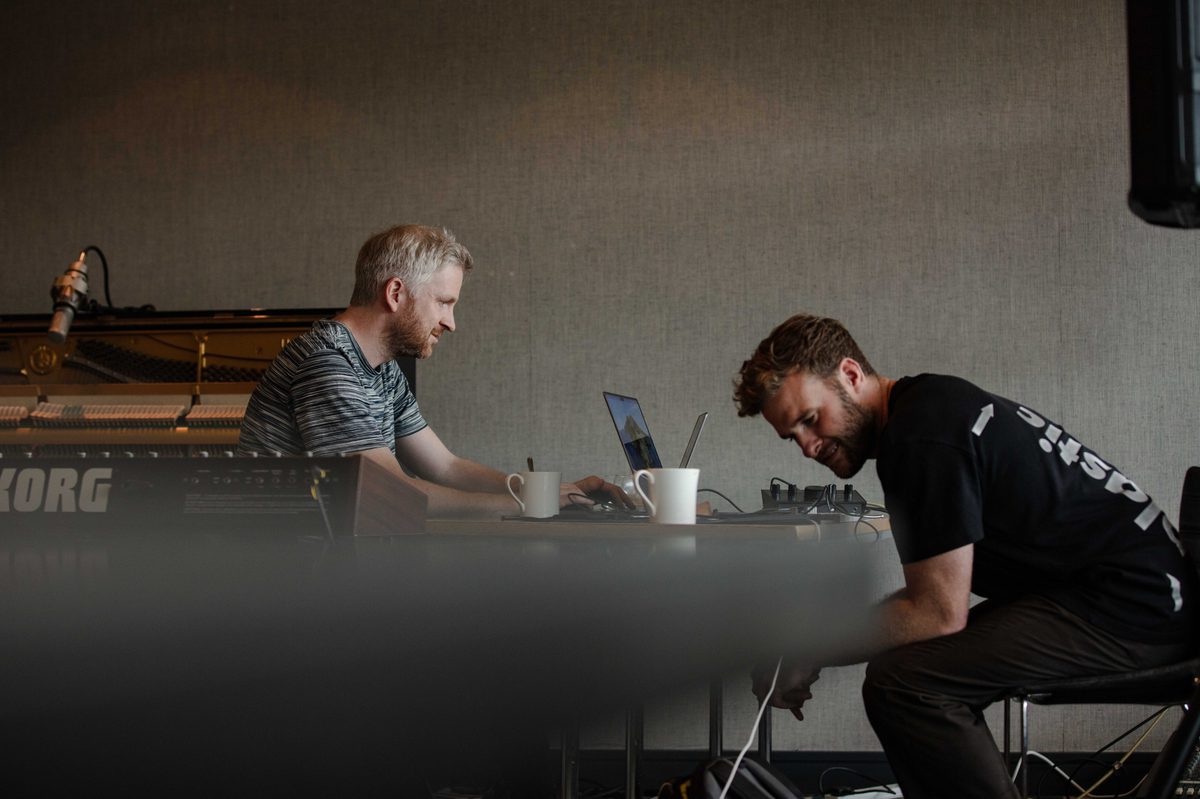
Their shared friends had long said that they would have to meet. French, the Irish musician known as Talos, had a voice in possession of an emotion and sense of melody which felt like an invocation of something ancestral; Arnalds, the Icelandic BAFTA-winning composer, producer and multi-instrumentalist whose blends of classical, electronic and ambient sounds pioneered a new language in contemporary music. They had met not by sustained efforts made by music figures to put them in the same room, but by chance at a bar in Reykjavík. French had just run a marathon and had ended up in the same bar where Arnalds was drinking with mutual friends. So often had they heard of each other’s reputations as artists that the ice had long since broken.
“I hate to compare myself to him, because I hold him in very, very high regard,” Arnalds notes, “but there are definitely parts of our personalities and our being, and the way we approach music, which are really alike. It’s hard to explain… There’s a soul in his music that is kind of unparalleled in people I’ve worked with. An emotional quality to his words, to his singing, to his style and songwriting, which I just felt very fascinated by. He’s an amazing lyric writer – and he writes fast, too, which I appreciate. We’d get into a room and things would just start flowing out of him like a waterfall. It was incredible to watch.”
A few weeks after their first meeting, Arnalds would observe this for the first time at a residency in Cork called Safe Harbour. The idea was that you would work with many different artists throughout the residency - but after the door closed behind them on that first day in the studio, they worked only with each other. “We got on a roll from the first minute, and we just couldn’t stop,” Arnalds recalls. It quickly became a reason to spend time together.
A Dawning ends with their shared beginning in those sessions together, one of the earliest tracks being “We Didn’t Know We Were Ready”. It begins serene and still, with only ripples of piano to break the calm; French’s unmistakable voice glides above it, becoming emboldened with an earned wisdom: “What if the dreams were ours to keep? What if the silence said it?” There is a moment where his voice disappears, pulled by a tide of its own. Galway folk singer Niamh Regan and Irish folk duo Ye Vagabonds break the surface – French’s song is exalted by a chorus of friends and Arnalds’ strings which, in its final crescendo, brushes fingertips with heaven. It closes with a profound quiet. What began between Arnalds and French as a song about refusing to be tortured by art transmuted into something existential: a testament to the peace which arrives with acceptance.
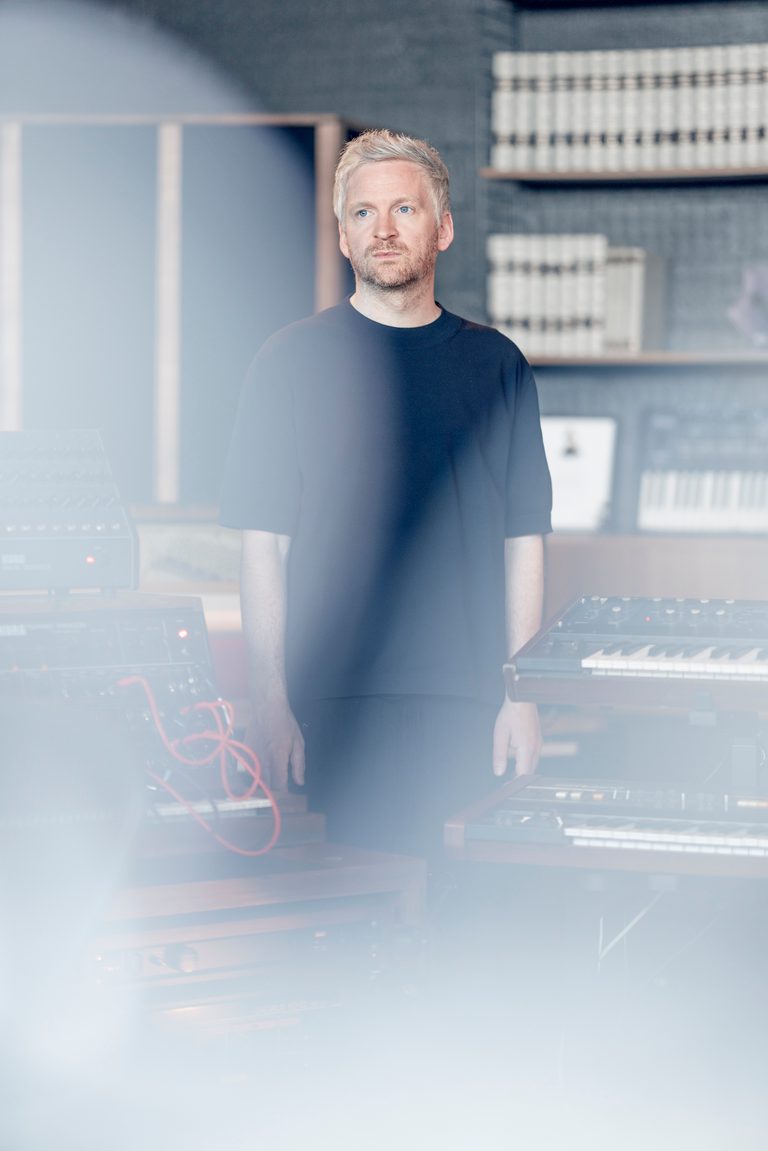
For Arnalds, who assumed the role of producer in their dynamic, it was never about merely translating French’s writings into sound. “We were writing things together, and then we’d sculpt it until it took shape,” he says. “This reminds me, what would happen quite often while we were jamming was Eoin would take the mic and sing gibberish just to write something for a demo. You could hear a word here or there, but afterwards, he would go back to listen to the gibberish and try to figure out what he was saying.
"It goes back to the idea of the body in the rock – that within these unshaped, gibberish words, the real words already living there. We just didn’t know them yet. I think that’s such a beautiful part of the creative process – we can sit here and talk about how we did it, but for us, it just happens. It felt like this music already existed and it was our job to channel it.”
This is a tale of two cities as equally as it is a tale of two brothers. A Dawning was written between French’s West Cork and Arnalds’ Reykjavík, forged from the magnetic pull of common history. “Icelanders and Irish people tend to connect very well,” Arnalds explains. “There’s a lot of shared history there, and with the shared history comes a shared sense of humour – and a shared love of drinking. There’s almost a national love affair between the two. There’s an island mentality which is otherwise rare in Europe, but both Iceland and Ireland have been more isolated throughout history which creates a different culture.
" I think colonisation has something to do with it as well. Iceland was part of Denmark until 1944, and obviously Ireland has been under England. They’re quite different, but there are still commonalities. People had to push with their elbows to create space for themselves. I think it’s deeply ingrained in our DNA, this pushing, because we’ve been conditioned to believe we’re small and should stay small. Many ambitious Irish and Icelandic people want to grow bigger than history tells them they should be.”
"With this album, all of my ambition disappeared. What I’ve learned is none of it matters. This –what I shared with Eoin – is the reason you do music and I have to remember that."
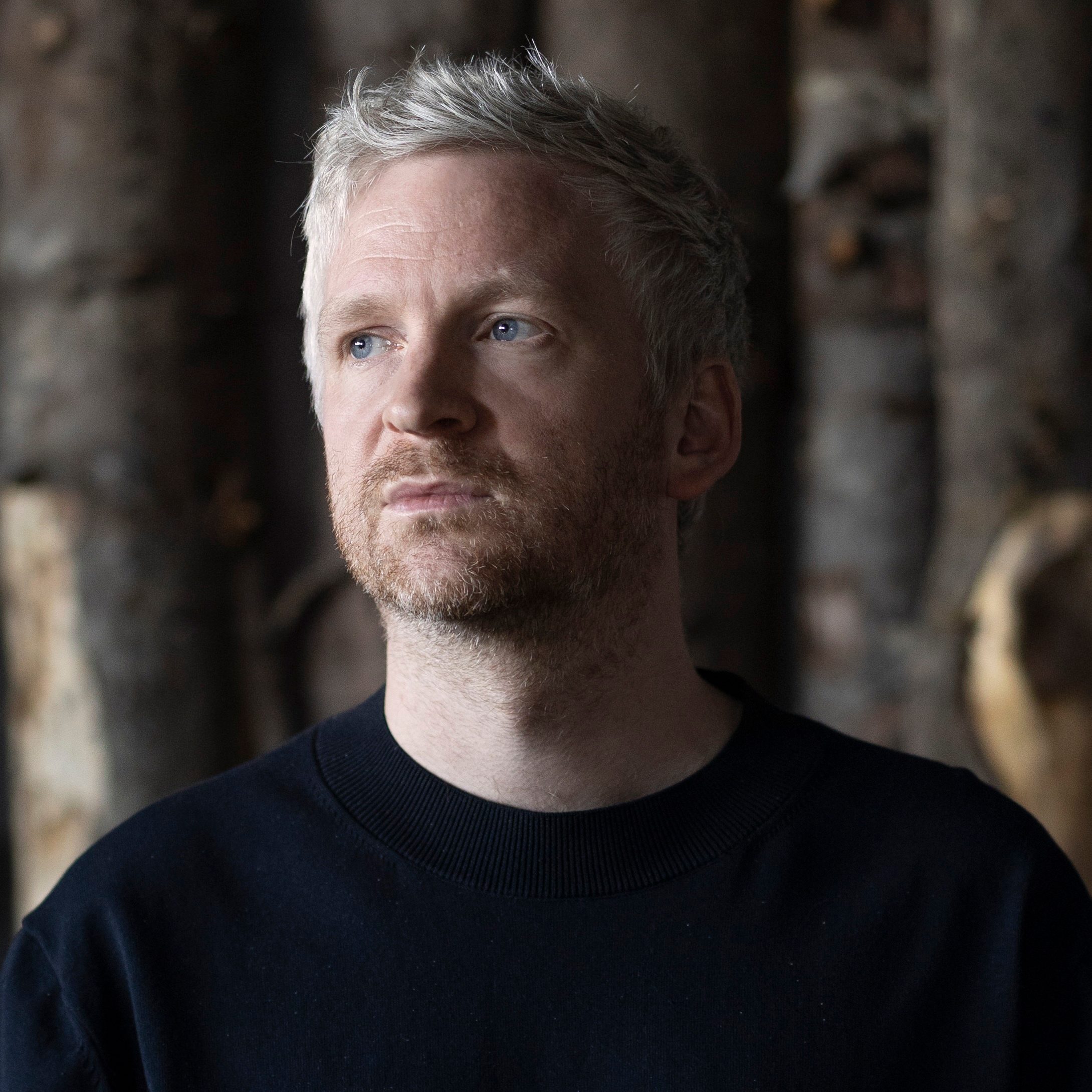
They each adopted the other’s homeland. In many ways, A Dawning is a duet between the spirits of the two island nations. The first time Arnalds saw West Cork, he felt an instant affinity with its cliffs, hills and vast expanse of ocean. French took him on a drive to see the local sites, and a ritual stone circle sparked the beginnings of “Bedrock”. It was written in French’s studio in West Cork along with Max Porter, the author of Grief is the Thing with Feathers, and takes on a darker, almost elegiac burnish. The embers of French’s voice still burn: “I’m an ancient warning / I’m an ancient stone / Bind me to this island, raise it from the smoke / Fly above those omens, gravitate to love.”
Arnalds recalls, “It was written at a time of uncertainty about his health. For the first time, we started to hear from doctors about the severity of the illness. We weren’t really wanting to believe it. He was determined to fight while at the same time, in the back of his head, preparing for the worst… preparing for everything. The situation was affecting the music quite a lot. There’s a hymnal quality to [‘Bedrock’], a heaviness - but there’s a lightness, too.” Its lasting impression is one of transcendence; fortified by the voice of Indonesian-Filipino artist – and Arnalds' wife – Sandrayati Fay, its knowledge – both articulated and unspoken - feels altogether ancient.
French was diagnosed with a terminal illness in Reykjavík. After being released from hospital, he chose to stay with Arnalds. He was too ill to create anything by that stage, but Arnalds believes those weeks were just as important to the album’s story. “I felt like we were getting closer as humans. An experience like this brings you very, very close,” he shares. “We would spend our nights at home, often just listening to music, listening to what we had created or talking about it. He wasn’t in much of a state to sing or play – but I would often play for him. I remember this one night while we were cooking, and he just sat down by the piano in our home and he started playing. There were a few friends here with us when he played for the first time, and all of us just started bawling. To see him become himself again - his most true self – and express himself through the piano was just a fantastic experience. And those experiences shaped what we created.”
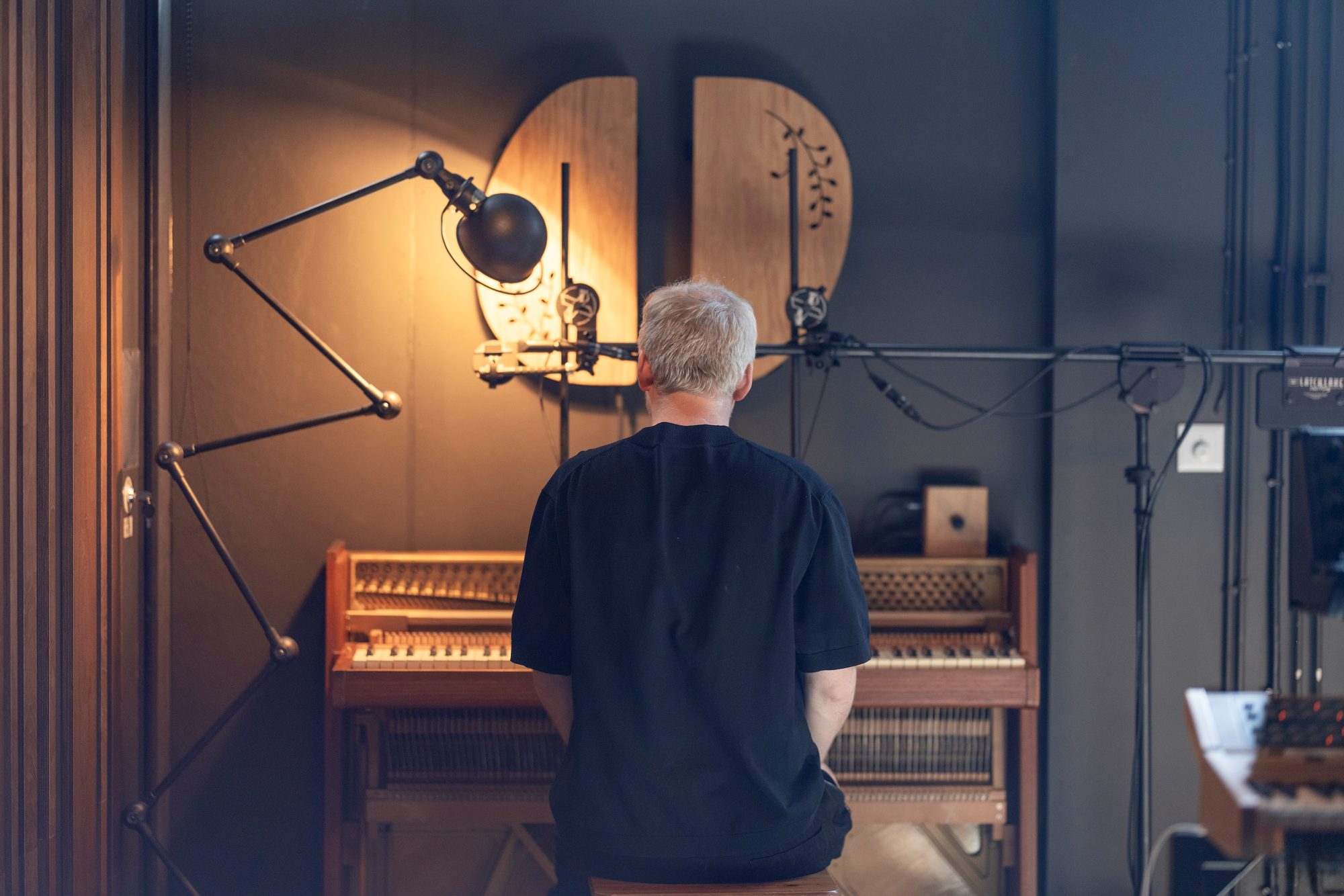
About dying, they would speak directly. “He never shied away from any of that,” shares Arnalds. “This was very much on the table, and it was not being hidden. There was nothing to shy away from – this was his life. He wore his heart on his sleeve, anyway. I don’t think he could’ve hidden it even if he tried. So, naturally, it became a part of our writing process. I’m sure it was an escapism in some parts, but it was also a reason to live. I’m a little sad to say it, but for me, sometimes my reason for continuing with this album was to keep him going because I could see how much life it gave him. It’s not escapism as much as it was a life force, giving him something he had power and control over.”
Arnalds sees A Dawning as a story in three parts, which plays out almost chronologically throughout its sequencing. The first part, when they were working together intensively, was one of exploration, excitement and new connections; the second was finding a reason to fight, a reason to live and a newfound appreciation for community and brotherhood – and the third, final part, is still being written. How do we live on through our community, and in our loved one’s absence, how do we protect their legacy?
“When he was passing, he gave me the permission to go through his demos and look for a piano song – because we both felt we wanted to include one of his own on the record.” Arnalds struggled to find anything, and then French’s wife reached out with something her late husband had dedicated to her on Valentine’s Day. “I instantly responded to her, ‘This is it, this is what I’ve been looking for’,” says Arnalds. “I didn’t really touch it. All I did was write the string part in the second part of the song, almost in an act of handing the song over. In a way, it’s a gesture of a love we share for her and taking the torch and carrying it from now on. It’s a strange collaboration, bouncing things back and forth through the veil.”
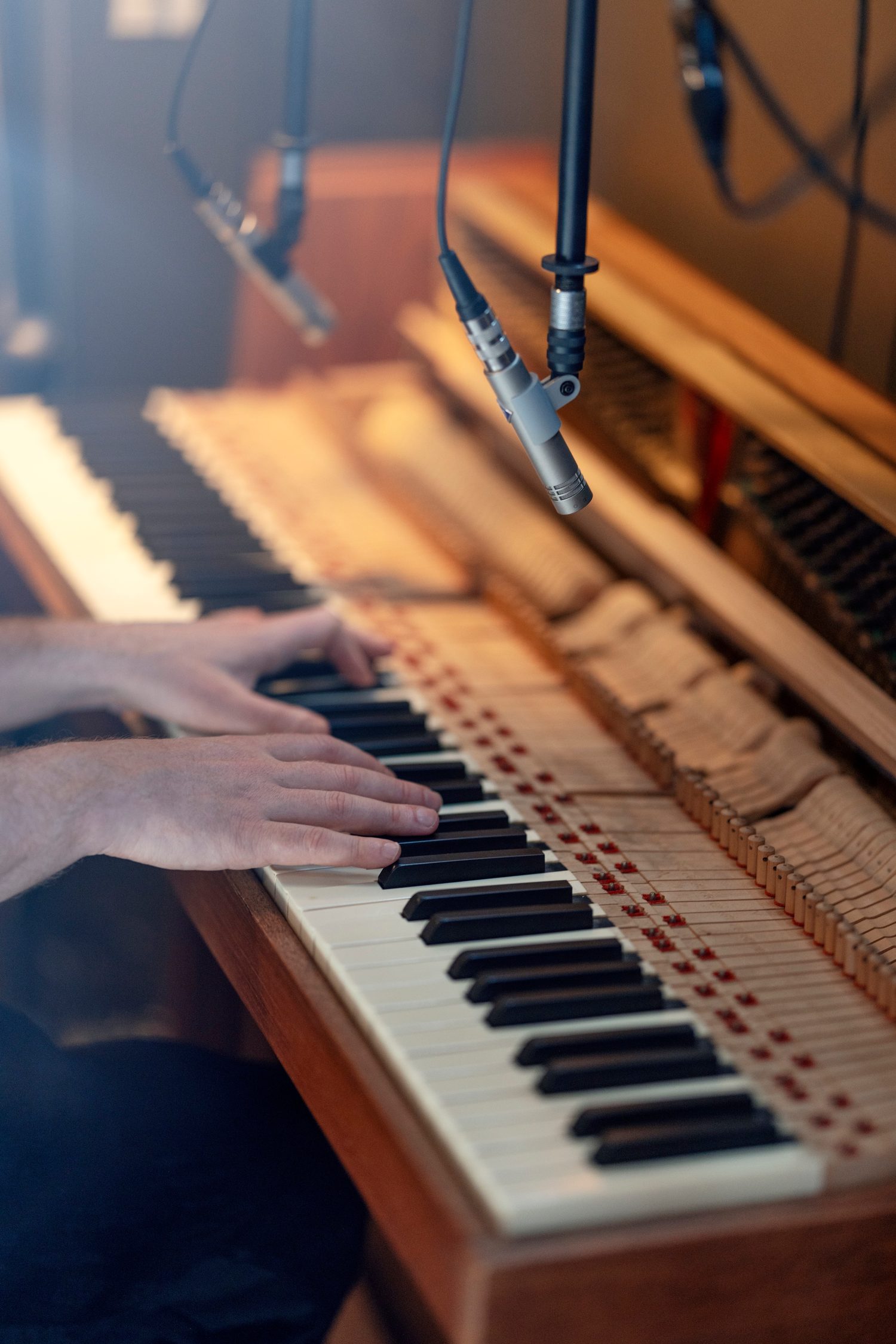
He worked on it for three months after French’s passing, having to make decisions without his musical partner’s presence which had made the process of making it a pleasure and not a private torture. “You don’t want to fake anything – I didn’t just want to put these unfinished songs into autotune and just fix it. It started bringing up questions about vulnerability, and whether we could stand with an unfinished thing. Is a thing ever finished, anyway?” Arnalds ponders. “What is an album? Just because you did fifty vocal takes and picked the best one, does that make it count? What does it mean to present something in a finished way?” “West Cork”, for example, is stitched together from jams and fleeting moments committed to record, left untampered. “A couple of songs still have the gibberish lyrics on them,” Arnalds notes. “They never got their final words.”
A week after the loss, Arnalds realised they had scheduled an orchestra for the album which they booked together in the hopes French would survive long enough to witness it himself. The grief was at its most heightened, then, but Arnalds made the difficult decision to honour the date and go ahead with it. “I always felt like I couldn’t do this alone completely. I’d already gathered a little group of people, a few of his friends from Ireland and my partner who lives here with me,” he reflects. “And I tell [the orchestra] about this record. I tell them about Talos, and then I tell them that he actually passed away ten days before. You could just hear this audible gasp go through the orchestra. I look over to the first violinist who has tears in his eyes. Then the conductor comes up to me, puts his hand on my shoulder, and just says, ‘Don’t worry Oli, we’ve got this.’”
They started playing the title work, “A Dawning” – what Arnalds believes to be French’s greatest songwriting. “I didn’t remember anything until they finished playing,” he reflects. “I had to ask them to go again. But they locked in so hard. I’ve never seen a session orchestra emotionally invest so emotionally in the music. Something magical happened that day. It was amazing.” I tell him that I almost couldn’t bring myself to return to it again; the song carries an emotional charge that isn’t lightly listened to. “I absolutely cannot,” he replies.
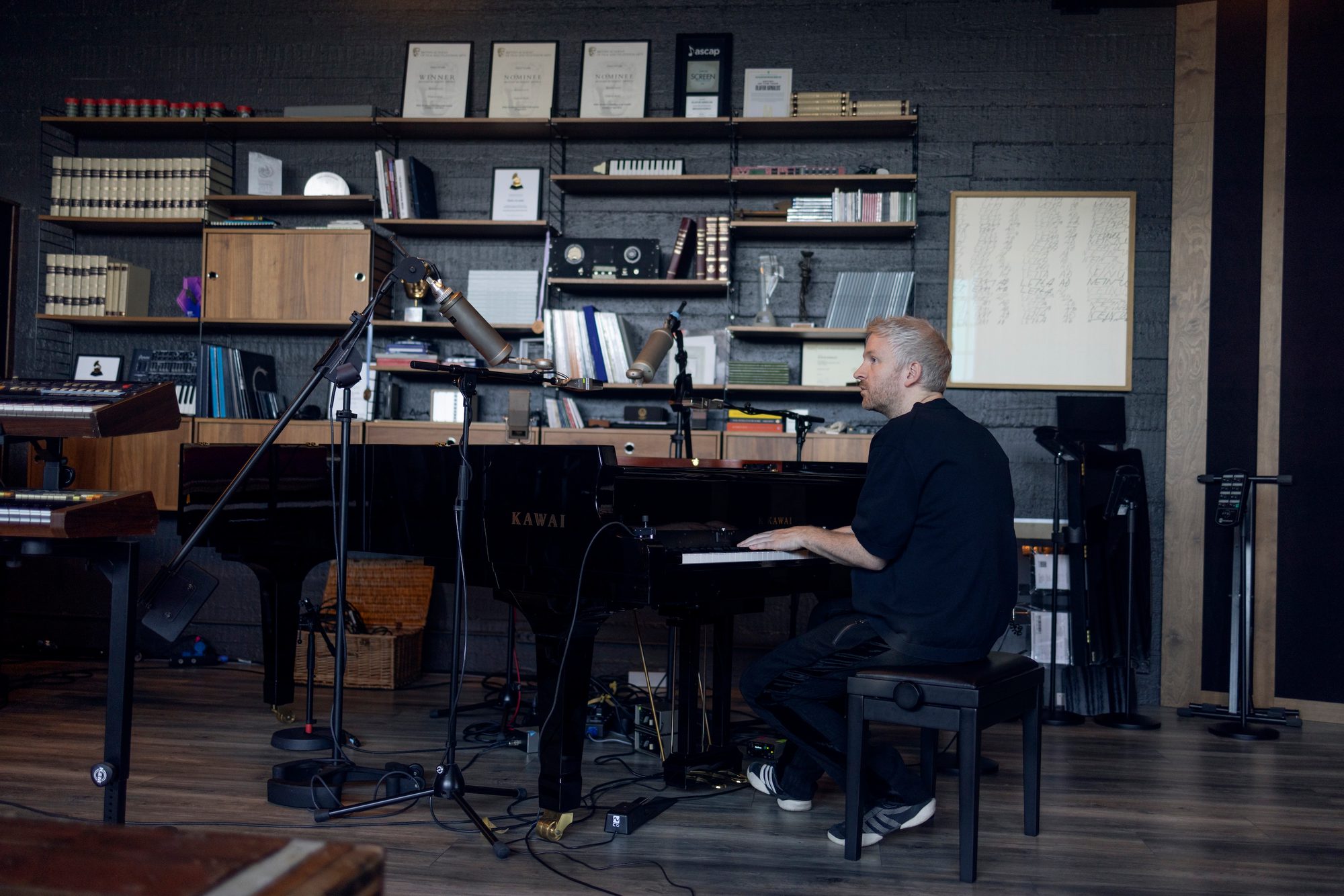
Through immersing himself in finishing the album, Arnalds rarely left himself room to grieve. “It’s still something I’m processing very much,” he shares. “But what I do know is I am so lucky to have this grief. If grief is the feeling where you have love for someone but have nowhere to put it, then in making this album I did actually have somewhere to put it – and that made me feel so much better.” While he has been preparing for the album’s release, his mind has forced him to stay analytical and work-driven. But recently, he listened to it for the first time with friends and those emotions he had set aside had finally cracked wide open. His relationship to it, as it passes from French’s hands to his hands – and finally to yours – is ever-changing.
A Dawning has shaped Arnalds as an artist, of course, but above all it has shaped him as a human being. “It’s a life experience I’ve never gone through – and I hope I don’t have to do again,” he says. “There’s a lot of things in the music industry that you strive for: they might be around success, they might be around clout, they might even be specific artistic endeavours like chasing a particular sound. But it’s still all about ego, somehow. It’s funny, because with this album, all of my ambition disappeared. What I’ve learned is none of it matters. This – what I shared with Eoin – is the reason you do music – and I have to remember that.”
Get the Best Fit take on the week in music direct to your inbox every Friday

Lorde
Virgin

OSKA
Refined Believer

Tropical F*ck Storm
Fairyland Codex





